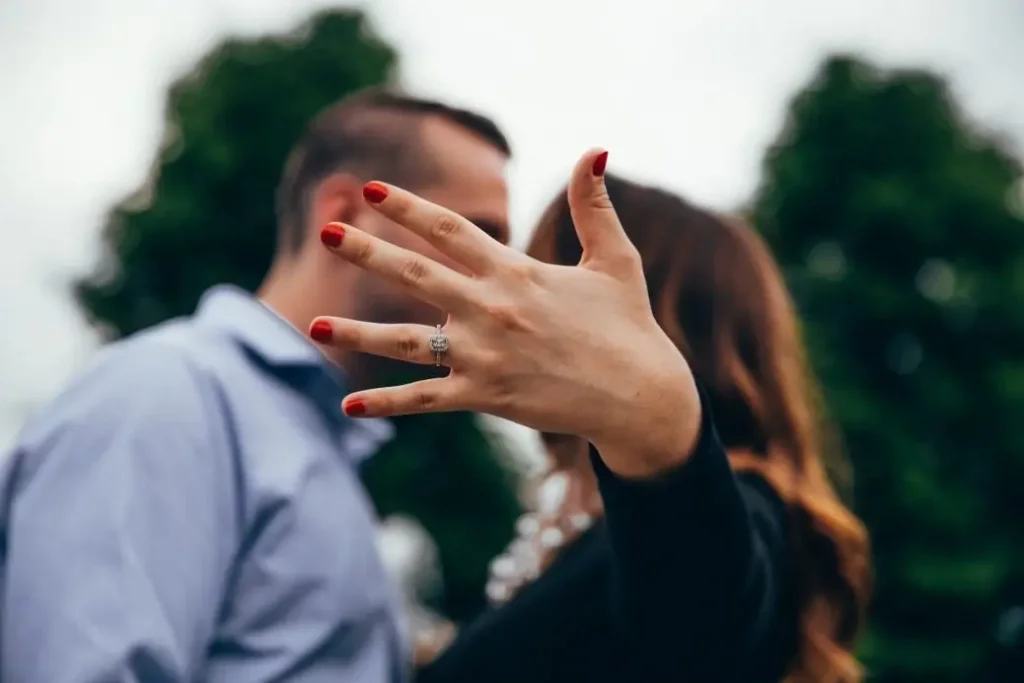
Surviving through the K1 Fiancé(e) visa denial is not easy, but you can always give it a second try. Let’s get you going and go over the list of the most common reasons why foreign citizens who want to get married to their United States fiancé(e) in the United States have their K1 Fiancé(e) visa denied.
To err is human. However, if you don’t read the visa requirements carefully before creating a petition for your foreign fiancé(e), you risk getting rejected due to errors made while you were creating your petition. Namely, if your foreign fiancé(e) inserts wrong information in their visa application, their visa application will not get approval. Moreover, meet your deadlines, prevent absent-minded mistakes, and leave the application in hands of our experienced visa consultants to prevent the K1 Fiancé(e) visa denial. Schedule an online consultation with our immigration lawyer from govassistlegal.com and start planning.
Most importantly, both of you must have a favorable background and provide evidence of your genuine relationship that is consistent with your petition. Furthermore, your couple photos, airline tickets as proof of mutual visits, and screenshots of your written correspondence are as serious as the requirement that both of you are legally eligible to get married. The list of requirements is long and details matter to make K1 Fiancé(e) visa denial not happen. Luckily, when you get VisaExpress services, your personal visa consultant prepares your case in detail and answers any questions you might have on your visa journey.
Some visa applicants are mostly applying only because they want to immigrate to the United States to gain permanent residence. The Consular Officer might have a subjective bias towards your foreign fiancé(e) if they’re coming from one of those applicants' countries. In addition, if they recently divorced, the Consular Officer might be biased. Prove that you’re planning to get married within 90 days from the moment your foreign fiancé(e) enters the United States. If you provide this information in a written form, that will boost your foreign fiancé(e)’s chances for visa approval. If not, that may make your foreign partner’s K1 Fiancé(e) visa denial happen.
If any of you have been a part of this process before, the Consular Officers might have doubts if your relationship is real. If you as a United States citizen petitioned for a foreign fiancé(e) or spouse that is not your current foreign fiancé(e), the Consular Officers might think that you’re making pacts with foreign citizens to help them obtain permanent residence in the United States. The same goes for your foreign fiancé(e). If another United States citizen petitioned for them in the past, the Consular Officers might think that your foreign fiancé(e)’s only goal is to immigrate to the United States.
In case you keep your relationship away from your friends and family, that might look mistrustful. If you don’t have any photos from your family gatherings, it might seem that your family doesn't know about your relationship. If you are an LGBTIQ couple and face discrimination or estrangement from your family, be aware that the Consular Officers are sensitive to the issues. They might disregard the lack of family support.
Honesty is the best policy. Explain the reasons why your foreign fiancé(e) had their past visa application(s) denied. It doesn’t matter if your foreign fiancé(e) applied for a non-immigrant visa in the past and got it denied. They should provide an explanation as well. Lying about it would just put your foreign fiancé(e)’s present visa application at risk. Schedule a consultation with one of our experienced immigration lawyers from govassistlegal.com to benefit from the right attention for your particular situation.
When you as a United States citizen start the petition for your foreign fiancé(e)’s visa, you need to prove that you have enough financial resources to secure your foreign fiancé(e)’s stay in the United States until they find employment. Thus, check your income eligibility. Namely, having enough funds is the prerequisite for your foreign fiancé(e)’s visa application.
Proof of an in-person encounter that occurred within the past two years is treated as a significant confirmation of your established relationship. If you weren’t romantically involved at the time you met, it is still treated as a fulfilled requirement for the K1 Fiancé(e) visa.
From time to time, some applicants are simply not qualified for the K1 Fiancé(e) visa. They might have a criminal background. They might not be not single. Or they have a history of denied or illegal entries to the United States.
Keep this list handy and use it to prepare for your K1 Fiancé(e) visa application. Consulting provided by our immigration lawyer from govassistlegal.com decreases your worries remarkably, saves your time, and increases your chances of getting visa approval.
VisaExpress is part of the GovAssist family, which also owns and operates GovAssist Legal, a non-traditional legal services provider authorized to the practice of Immigration Law by the Utah Supreme Court’s Office of Legal Services Innovation.
Our team is supervised by in-house immigration lawyers, and you will be provided with attorney representation throughout your case. Using technology and our paralegal team we can charge much less than traditional law firms.
Disclaimer: https://visaexpress.us.com is not affiliated with the United States Department of State (US DOS), the United States Department of Homeland Security (US DHS), the United States Citizenship & Immigration Services (USCIS), or any other United States government agency. Neither VisaExpress.us.com nor its employees claim to have any special knowledge of immigration law or procedure. Listed purchase prices for application preparation assistance services do NOT include any government application, medical examination fee, filing, or biometric fees. The applications completed using our service are available as blank forms for free on USA Government websites. We are a private, internet-based travel technology service provider dedicated to helping individuals travel to the United States. If you do not wish to utilize our services, you may apply directly at travel.state.gov or at uscis.gov.